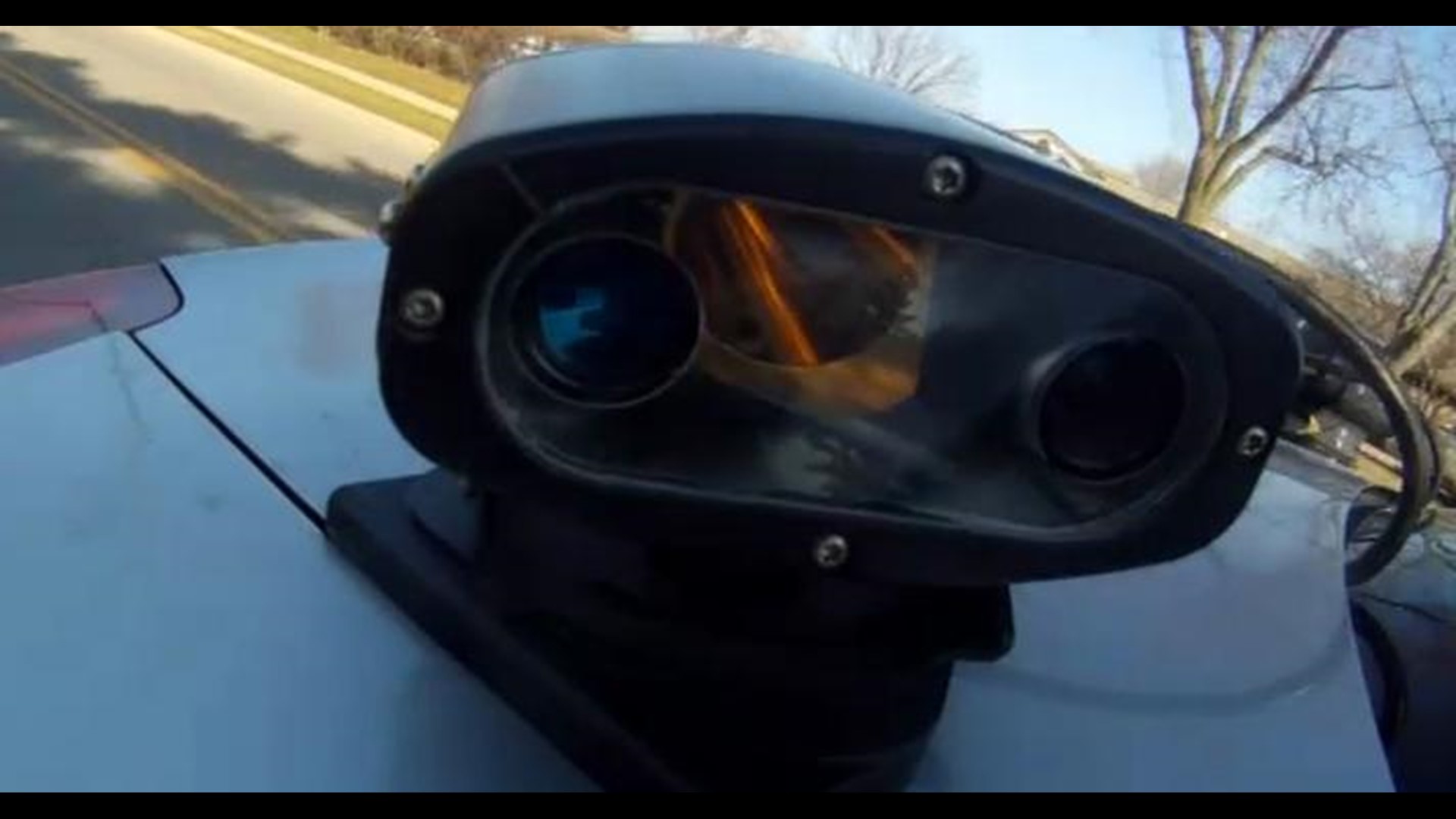The American Civil Liberties Union is questioning the use of license plate scanners.
The scanners are crime fighting tools that can help police quickly separate the criminals from the law-abiding citizens. The readers can scan each vehicle that passes by and pulls the information coded in each license plate number.
If there is criminal activity attached to the license plate, an officer, deputy or trooper will take action.
Depending on the law enforcement agency, the information is stored for minutes, days, or even months. That lack of consistency in the storage of information between departments concerns the ACLU.
“The problem… is that they can be misused,” said Gary Daniels of the ACLU of Ohio. “When it comes to attending certain rallies or protests, or things that might involve, for instance, going to a gay bar or worshiping at certain places, that information some people would rather law enforcement and prying eyes not know.”
The Franklin County Sheriff’s Office confirmed with 10TV their policy, which states the department keeps license plate data for 90 days.
The Ohio State Highway Patrol said it purges its data almost immediately if no crimes are connected to the plate.
“I don’t think there is any legitimate law enforcement reason to keep that data for three months,” Daniels said.
Officer Chris Davis with the Westerville Division of Police said that the license plate scanners can be helpful.
With a snapshot from the camera mounted on his cruiser, and a quick information scan through their internal system, Davis can check if any license plate is connected with something illegal. If it is, officers are alerted.
“It shows on the screen right now exactly what has been read, and it gives the time it was read today,” Davis said.
The officer said that he believes there is usefulness in keeping the data.
Westerville Police said their policy is to keep information from the license plates for 30 days, then the information is handed over to the Franklin County Sheriff’s department, which holds the data 90 days from the date of the scan.
“I think any time a plate is read and you have ongoing investigations, investigations can sometime takes days, sometimes months and years,” Davis said. “If we have the ability to go back months and years to try to capture that data, that could help us in our investigation to solve a crime.”
ACLU representatives said they are in the process of pushing for new legislation to regulate how law enforcement agencies store and use the information statewide.
Daniels said the ACLU has no problem with the technology, but wants the storage of the data regulated.
Watch 10TV News and refresh 10TV.com for more information.
Privacy Concerns Rise Over Ohio’s License Plate Scanners
They’re crime-fighting tools that can help police quickly separate the criminals from law-abiding citizens. Some, though, are concerned about privacy invasion.

